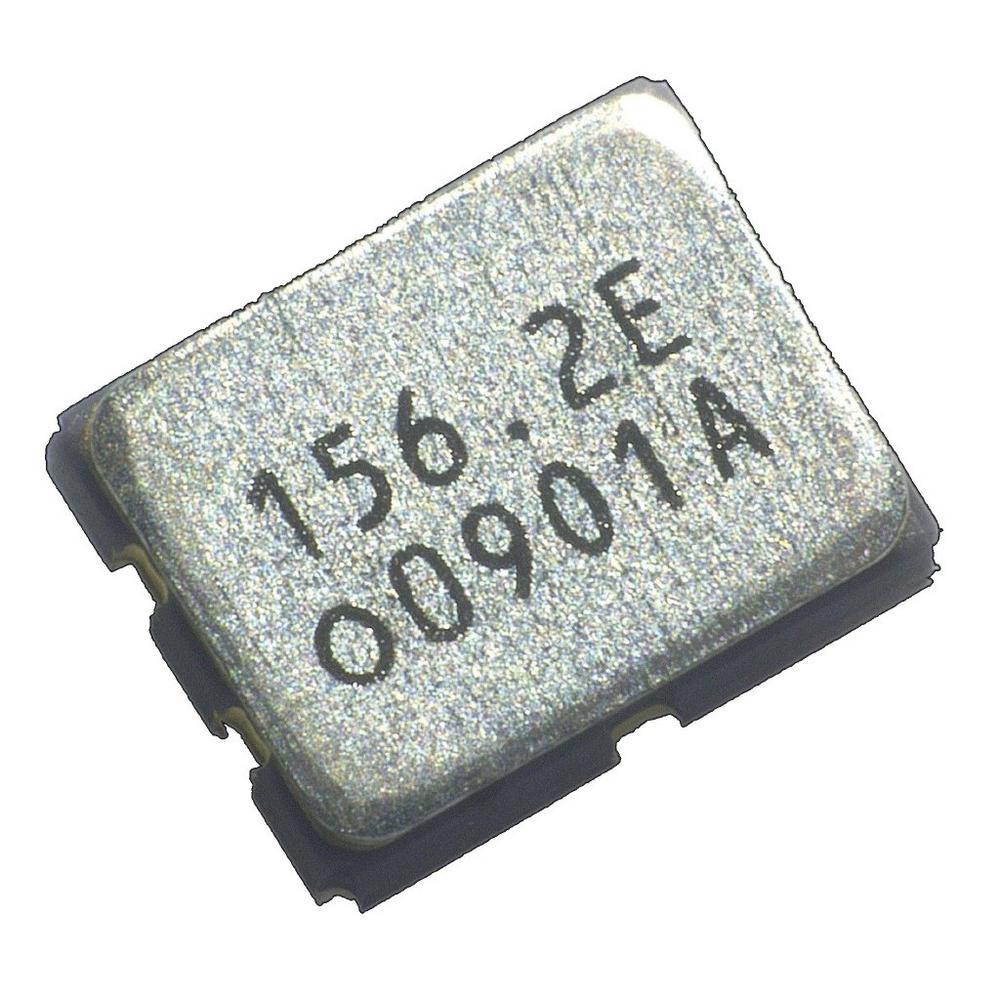Telecommunications network traffic and capacity continue to increase with the introduction of 5th-generation telecommunication systems (5G) and the evolution of mobile networks, the Internet of Things (IoT), Advanced Driver Assistance Systems (ADAS), and data centers. At the same time, the noise level permissible in communication signals is lower, and clocks used in network equipment must operate at high-frequency and have low phase jitter. Optical communication modules that connect network devices are becoming faster and smaller, and clocks with a frequency tolerance of ± 20 x 10-6 or less are needed for transmissions at ultra-high speeds of 400 Gbps and 800 Gbps and distances of 80 km or more.
Like Epson’s earlier comparable products, the SG3225EEN and SG3225VEN, the new SPXOs offer frequencies up to 500 MHz and low phase jitter. In addition, they are equipped with a compact oscillator IC developed by Epson that compensates the temperature coefficient of frequency of the built-in HFF crystal oscillator4. The use of this IC enabled Epson to shrink the footprint of the SPXOs by 63% and their cubic volume by 44% compared to the previous products. Furthermore, they demonstrate superior frequency stability, with a frequency tolerance at -40 to +105˚C that is half that of the predecessor for SG2520EGN and SG2520VGN and 40% for SG2520EHN and SG2520VHN. The new series has the ideal characteristics for small optical communication modules. As a leader in quartz crystal devices, Epson will continue to provide crystal device products required in electronics and social infrastructure.
Product applications- Network equipment (routers, switches, optical modules, etc.)- Data centers- Factory automation equipment, measuring instruments- High-speed DA/AD converters Related links
Please see the link below for product details: https://www5.epsondevice.com/en/news/topics/sg2520xgn_xhn_lp.html
1 Differential output: A method that outputs frequency signals with opposite polarities. Differential output enables high-frequency transmission and has strong noise resistance.
2 Jitter: Fluctuations in the clock period that can cause things such as fluctuations in displayed images and bit errors in data transmissions.
3 Fundamental mode: The natural frequency at which a crystal unit vibrates.
4 High-frequency fundamental (HFF) crystal unit: A crystal unit that can oscillate at a high-frequency fundamental without compromising crystal chip strength because a photolithographic process is used to create an inverted-mesa structure in which only the vibrating area of the crystal chip is thinned to a thickness of several microns. HFF crystal units contribute to the stability of high-speed, high-capacity telecommunications because they can suppress nearby harmonic components.
About Epson
Epson is a global technology leader dedicated to becoming indispensable to society by connecting people, things and information with its original efficient, compact and precision technologies. The company is focused on driving innovations and exceeding customer expectations in inkjet, visual communications, wearables and robotics. Epson is proud of its contributions to realizing a sustainable society and its ongoing efforts to realizing the United Nations‘ Sustainable Development Goals. Led by the Japan-based Seiko Epson Corporation, the worldwide Epson Group generates annual sales of more than JPY 1 trillion.
global.epson.com/
Epson Europe Electronics GmbH is a marketing, engineering and sales company and the European Headquarters for electronic devices of the Seiko Epson Corporation, Japan. Since 1989 headquartered in Munich/Germany with 50 employees, Epson Europe Electronics GmbH has European sales representatives and a European-wide network of distributors. Epson Europe Electronics provides value added services for Semiconductors, Sensors, Sensing Systems and Timing Devices targeted to all markets like industrial, automotive, medical, and communication. Epson products are recognized for energy saving, low power, small form factors and rapid time to market. Information about Epson Europe Electronics GmbH is available on the Internet under www.epson-electronics.de
Epson Europe Electronics GmbH
Riesstraße 15
80992 München
Telefon: +49 (89) 14005-0
Telefax: +49 (89) 14005-110
http://www.epson-electronics.de
Marketing Communications
Telefon: +49 (89) 14005-278
Fax: +49 (89) 14005-426
E-Mail: carolin.schwan@epson-electronics.de
![]()

